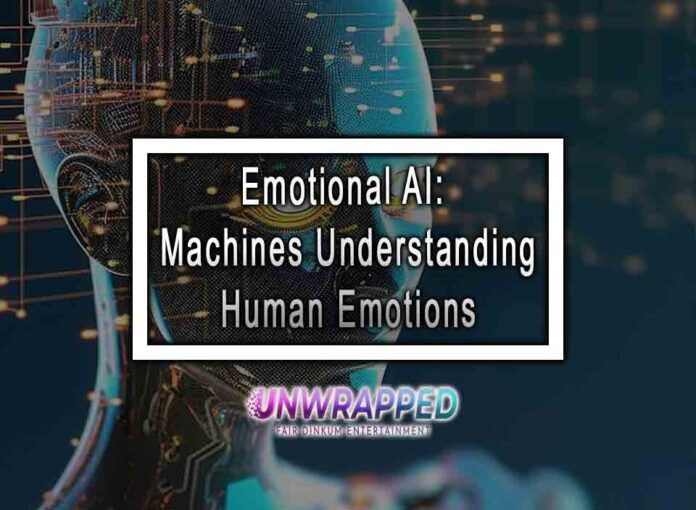Introducing Emotional AI: A Journey into Empathetic Machines
In the fast-paced world of technology, the possibilities seem endless. Artificial Intelligence (AI) has already revolutionized various industries, and the next frontier lies in the realm of emotions. Imagine machines that can not only perform complex tasks but also understand and respond to human emotions. Welcome to the world of Emotional AI, where empathy meets cutting-edge technology. In this listicle, we delve into the fascinating world of Emotional AI, exploring how machines are learning to comprehend human emotions, and how this advancement could reshape our future interactions with technology.
1. What is Emotional AI, and How Does it Work?
Emotional AI, also known as Affective Computing, is a branch of AI that focuses on recognizing, interpreting, and responding to human emotions. Through a combination of advanced algorithms, machine learning, and data analysis, emotional AI systems can process various emotional cues such as facial expressions, tone of voice, and body language. By analyzing this data, machines can make informed decisions and offer appropriate responses, tailored to the user’s emotional state.
2. Empathy in the Digital World: The Benefits of Emotional AI
The incorporation of Emotional AI into our digital landscape brings forth a myriad of benefits. For instance, virtual assistants equipped with emotional intelligence can provide empathetic responses, offering comfort and understanding during challenging times. Moreover, Emotional AI can enhance customer service interactions, leading to more personalized and effective resolutions.
3. AI Therapists: Bridging the Gap in Mental Health Care
Mental health is a crucial aspect of our overall well-being, yet access to adequate support can be limited. Emotional AI has the potential to bridge this gap by providing virtual therapists that can recognize and respond to human emotions with sensitivity and understanding. While not a replacement for human therapists, AI can offer a valuable supplementary resource for those in need.
4. Emotional AI in Education: Fostering Supportive Learning Environments
Emotional AI has the power to transform the education landscape. With emotionally intelligent tutoring systems, teachers can receive valuable insights into students’ emotional states, enabling them to tailor their approach and provide better support. Additionally, AI-powered virtual learning companions can offer encouragement and motivation, making the learning experience more enjoyable and effective.
5. Emotional AI and Social Robotics: Humanizing Human-Machine Interactions
Social robots are becoming increasingly prevalent in various settings, including healthcare, retail, and even households. Emotional AI plays a crucial role in humanizing these interactions. Robots with emotional intelligence can interpret and respond to human emotions, leading to more meaningful and engaging exchanges. This advancement has the potential to revolutionize the way we interact with machines in our daily lives.
The Emotionally Intelligent Future: Nurturing Empathy in AI
Emotional AI represents a significant leap in the evolution of technology, paving the way for a more emotionally intelligent future. As machines become adept at understanding and responding to human emotions, our interactions with technology will be richer and more empathetic than ever before. From virtual assistants providing comforting words during tough times to AI therapists aiding mental health care and AI-powered companions in education and social robotics, the applications of Emotional AI are vast.
However, with these advancements come ethical responsibilities. As we embrace Emotional AI, it is essential to prioritize data privacy, transparency, and the avoidance of emotional manipulation. By nurturing empathy in AI, we can create a world where technology not only empowers us but also understands and cares for our emotional well-being.
In conclusion, Emotional AI is not just about making machines smarter; it is about making them more human-like in their understanding and response. The journey towards empathetic machines may have its challenges, but the potential rewards are immense – a future where technology not only enhances our lives but also connects with us on a deeply emotional level. As we move forward, let us remember the importance of preserving our humanity while embracing the transformative power of Emotional AI.
Read on: Cognitive Robotics: 10 Ways Machines Learn and Thrive











